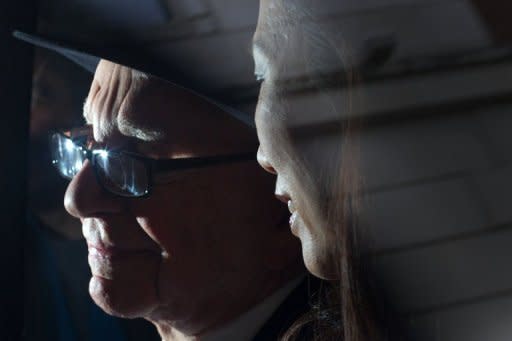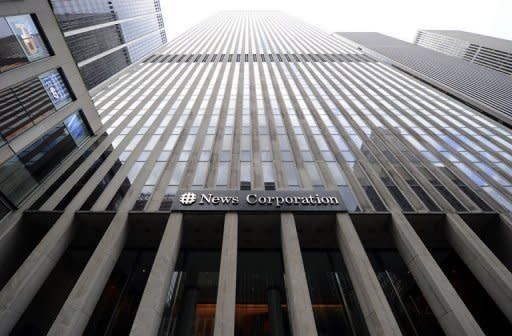Murdoch to pursue split of empire into two firms
Rupert Murdoch announced Thursday his News Corp conglomerate will press ahead with a split of the entertainment division from its struggling publishing business, saying he is committed to both units. Murdoch said he would be chairman of both companies, including an entertainment unit led by Fox studios and television assets, and a publishing unit that includes The Wall Street Journal and Times of London. "I firmly believe the future is very bright for both companies," Murdoch told a conference call, while noting that there were several "hurdles" before the split could be carried out. "Both of these businesses will be able to reach new heights." The split would spin off the struggling publishing operations, which have been hit by the slump in the newspaper industry and the phone hacking scandal in Britain, from the more profitable entertainment division. Murdoch, who is chairman and chief executive of News Corp, said the company has "a large and unparalleled portfolio of diversified assets" and that this structure has "become increasingly complex." "We determined that creating this new structure would simplify operations and greater align strategic priorities, enabling each company to better deliver on our commitments to consumers across the globe," the Australian-born magnate said in a statement. In a letter to employees, Murdoch said that the "very size and breadth has created an opportunity to separate News Corporation into two global leaders in their own right -- we will wow the world as two, as opposed to merely one." The deal is expected to take some 12 months to complete and will need final board and shareholder approval. Murdoch would serve as chairman of both companies and CEO of the media and entertainment company. Chase Carey, the conglomerate's deputy chairman, would serve as president and chief operating officer of the media and entertainment company. There was no word on who would head the publishing operations, which include The Wall Street Journal, Dow Jones, HarperCollins, The New York Post, and The Daily, as well the Times of London and other assets in Britain and Australia. The bigger unit includes Fox Broadcasting, Twentieth Century Fox Film, Twentieth Century Fox Television, Fox Sports, Fox International Channels, Fox News Channel, Fox Business Network, FX, Star and other TV operations. The move comes with Murdoch's empire under pressure from the phone-hacking scandal in Britain that resulted in the closure of the company's flagship News of the World tabloid and the resignation of several senior executives. Murdoch said the move "is not a reaction to anything in Britain" but had been under study for years as a way to boost shareholder value and simplify management. Some see the move as an effort to fence off the hacking scandal. Murdoch told his Fox Business Channel he was not planning a full takeover of satellite broadcaster BSkyB, in which News Corp has a 39 percent stake, which has faced regulatory hurdles. "There were billions and billions of dollars and if Britain didn't want them we have good places to put them here. I am much more bullish on America than I am about England," he said. The reorganization also could boost shareholder value for a conglomerate hurt by a so-called "Murdoch discount." Entertainment and TV generate some $23.5 billion in revenues to $8.8 billion for publishing, but analysts say the value of the entertainment unit is even more significant than the revenue numbers because of higher profits and growth. Shares surged more than 11 percent since news of the split emerged earlier this week, but fell 0.6 percent to close Thursday at $22.27. Still, many analysts remain positive. Analyst David Joyce at Miller Tabak said the split "would help Chase Carey focus on the entertainment assets and not be distracted by the lingering phone hacking scandal in the UK." Joyce said that over the next five years, he thinks the publishing operations could be taken private, with Murdoch and his family "in full control." Despite concerns about the troubles for the news industry, Murdoch said he sees a positive outlook. "The answer in one word is digital," he said. "People are buying fewer papers but they are equally getting their news in many other forms. People will pay for news, it's the most valuable commodity in the world. People need to know what's going on."




